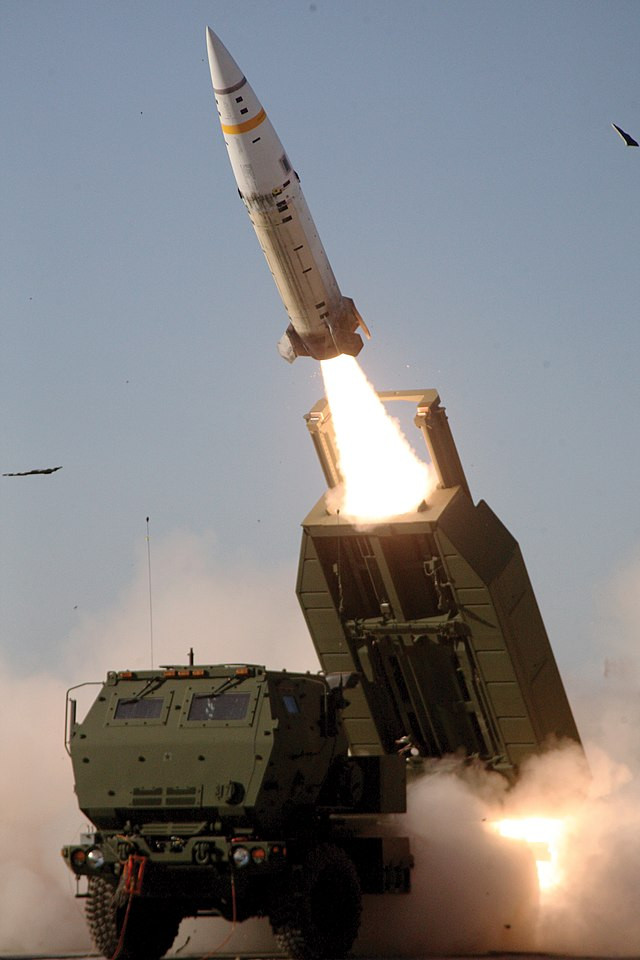The Kremlin on Monday accused President Joe Biden of escalating the war in Ukraine following reports that the U.S. has authorized Kyiv to use long-range American-supplied missiles to strike targets inside Russian territory. Kremlin spokesman Dmitry Peskov warned that the move represents a "qualitatively new round of tension" and directly implicates the United States in the conflict, raising the stakes for potential broader escalation.
"If such a decision was indeed formulated and brought to the Kyiv regime, then this is a qualitatively new situation from the point of view of U.S. involvement," Peskov stated. Russian President Vladimir Putin previously cautioned that any Western authorization for such strikes would signify NATO's direct engagement in the conflict, further heightening tensions between Moscow and Washington.
The decision reportedly allows Ukraine to use the powerful Army Tactical Missile System (ATACMS), which can target locations up to 190 miles away. This development is seen as a potential game-changer for Ukraine, which has long argued that the ability to strike Russian airbases and military installations within Russia is vital to counter ongoing attacks on its cities and infrastructure.
Military analysts have characterized Biden's policy shift as a significant escalation, though some believe it may have come too late to fundamentally change the course of the war. "The decision comes late, and like other decisions in this vein, it may be too late to substantially change the course of the fighting," said Michael Kofman, a senior fellow at the Carnegie Endowment for International Peace. Kofman added that while long-range strikes offer an important tactical advantage, they are unlikely to resolve the broader conflict quickly.
Ukraine's lobbying for long-range strike capabilities has been persistent, with President Volodymyr Zelensky emphasizing their importance in neutralizing Russian air assets and reducing attacks on Ukrainian cities. The Biden administration's authorization follows a pattern of gradual concessions, with Washington seeking to balance support for Ukraine with concerns about potential escalation involving NATO and Russia.
The reaction from Moscow has been swift and stern. Russian officials, including legislators Maria Butina and Vladimir Dzhabarov, warned of potential global conflict, with Dzhabarov calling Biden's decision "unprecedented." Butina expressed hope that incoming President-elect Donald Trump would reverse the decision, arguing that it risks triggering a broader war.
Military experts have pointed out that Ukraine's ability to hold strategic positions, such as in the Kursk region, could benefit from the use of long-range missiles. Ukraine's capture of a salient in Kursk has been under significant pressure from Russian forces, with Kyiv claiming that Moscow has amassed 50,000 troops, including contingents of North Korean soldiers, to retake the area. Rob Lee, a senior fellow at the Foreign Policy Research Institute, noted that while Ukraine's position in Kursk is under strain, sustained support and resources could allow it to hold the territory for a period.
The U.S. decision comes amid heightened military activity, with Russia recently escalating its missile and drone strikes against Ukraine's energy grid. Ukrainian civilians have endured blackouts and damage to critical infrastructure as Russian forces continue their offensive. On the ground in Kyiv, many expressed mixed feelings about the timing and potential impact of the U.S. decision. "This should have been used either as a preventative measure, or as a sharp reaction in February or March 2022," said Olga Korovyachuk, a Kyiv resident. "Now it does not play a big role."
As the Biden administration prepares to exit the White House, speculation grows over how President-elect Trump will handle the situation. Trump has promised to end the conflict swiftly, although he has yet to provide specific details on how he intends to achieve that goal. The potential for policy reversals and a new diplomatic approach looms as a critical factor in the unfolding dynamics of the war.
European allies, including France and Britain, have yet to clarify their positions on whether they will allow the use of their own long-range missiles by Ukraine. Lithuanian Foreign Minister Gabrielius Landsbergis emphasized caution, stating that it remains uncertain whether Ukraine's new missile capabilities will significantly alter the battlefield dynamics.




